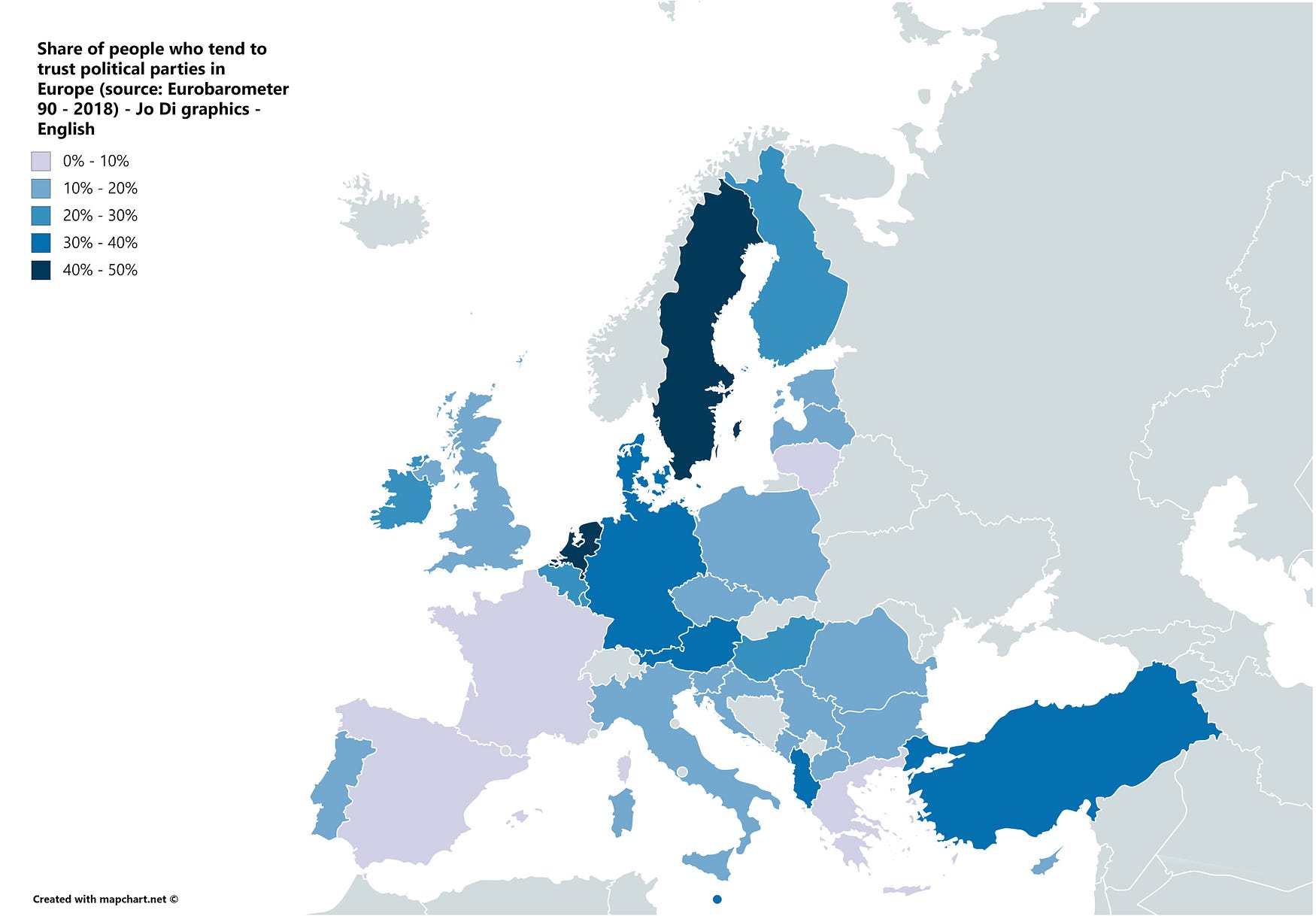In the last years, younger generations are disconnecting from traditional politics and governments. This fact, curiously, occurs all over the world and in all political regimes.
This disconnection shows a significance which goes beyond the individual or personal choice. Trying to know what causes this is not easy. Media, politicians and citizens are involved in this social issue, but they are not aware.
“Encouraging the development of youth exchanges and of exchanges of socioeducational instructors, and encouraging the participation of young people in democratic life in Europe”.
Lisbon Treaty, Article 165
Bennett (2008) states the mentioned “disconnection” is becoming a problem for society. Especially for the future generations, who are far of reaching the ideal of “good citizen”. Murphy (2007) defines an ideal citizen as a person politically aware and interested. Also engaged, knowledgeable and involved in the political decision-making process. Additionally, this ideal citizen discusses politics, is principled and rational.
On the other hand, youth civic engagement in non-governmental areas is usually much higher. Bennett talks about two paradigms to compare youth citizen. The active and engaged (AC — Actualizing Citizen) and the passive and disengaged ones (Dutiful Citizen — DC).
What are the causes of the disconnection?
As the first step of this disengagement, youth people usually do not take part in politics. Also, they usually are not holding relevant political appointments – the average age of politicians serving in the last US Congress was 57.8 years old. Taking the Lexus & Olive tree paradox (Friedman, 1999), there is a tension among the technological and youth society progress (the Lexus), and the politics anchored to their traditional values (the olive tree).
Political parties do not offer easy access to their relevant positions of the civic sphere. And usually, the party members do have little influence on the elites of the party. This happens even in nations that are doing well at imparting some basic civic knowledge to young people, said Bennett.
Still, political parties are in a bubble where they think that survival it is easy without the influence of new ideas. Things are changing in some countries, but the engagement crisis is too big.
Another important point is when political parties or political movements provide a place to debate (like social media channels: Facebook, Twitter,…). When youth people use these channels and there is censorship that bans comments against their ideas or ideologies, the disengagement increases. In the end, censorship leads youth people to avoid the use of these platforms to expose their thoughts.

In the educational side, politicians are not doing an effort to improve the disconnection with young people. For example, is common that educators are subordinated to laws made by politicians for their own interest. So, the use of education as a political tool leads to losing the standards of civic education. This lose, does not help to create “good citizens”.
Also, media outlets do not help when youth people is considered as a poor investment for their communications budgets. The influence of the economy in our actual system is becoming a problem in several aspects. In this case, the economic patterns of the different actors influence the relationships among citizens and politics.
What is behind the scenes?
Currently, I think the political leaders fail, but also the system fails. On the one hand, world leaders are unable to fit for the circumstances of the citizens from a long time ago. Perhaps politician leaders are well trained in economics, immigration, justice… but not on humanism. That causes them to fail in the observation and implementation of public policies. Also helps them to live outside a reality suffered and experienced by the citizens.
On the other hand, economic changes have a big influence on social changes. In the last decades, for example, Bennett (2008) mentions that is quite common that all members of a family start a career working. That means less time to care about other issues and more stress.
The current system pushes people to work more. But, young people face record unemployment levels, low salaries and poor labour conditions. That leads to a period where young people faces hard times. And increases the feeling that politicians are doing something wrong.
Globalization can be a problem when politics and democracies around the world are all different. If the new generations want to rethink about democracy and politics, they have to think different. They have to realize that the only way to change things is to be active in old-traditional politics.
So, are necessary the new technologies?
New technologies can provide tools to approach young people and to help in educational developments. But they not a way to change politics. Still, laws and constitutional rules are old-traditional politics and seem they would not change in the future.
For the moment, society is far from reaching basic educational and civic standards, proposed by Berelson in his idea of ‘good citizen’. Thus, an increase in the educational levels of society would be always the first step. It would lead definitely to a better welfare state and to have “good citizens”.
Can that level be increased by the use of new technologies? With the current approach, the answer is no. The new tech-tools are made to make profits and usually causes laziness and distractions in the capacity of the society. For the moment, they are far of being useful for political developments.
Sources:
-Bennett, W. L. (2008). Changing citizenship in the digital age. Civic life online: Learning how digital media can engage youth, 1, 1-24.
-Youth Participation in Democratic Life | EACEA 2010/03 | January 2013
-Gregg, Donna (2001), «The Lexus and Olive Tree of Global Communications,» Federal Communications Law Journal: Vol. 54: Iss. 1, Article 9.
-McClurg, Scott. D. (2003), «Social Networks and Political Participation: The Role of Social Interaction in Explaining Political Participation», Political Research Quarterly, vol. 56, nº 4, pp. 449-464.
